FASHION WEDNESDAY: AFRICAN MEN FASHION AND STYLES
AFRICAN MEN FASHION AND STYLES
Hello West Africa is your Fashionist @lashbank let's talk about African men's fashion
African men (like the rest of the male population in the world) are generally fashion-conscious and generally like to dress and look good, especially in public and on festive occasions. What makes African fashion unique, however, is that it is literally original and authentic. This means that it generally differs significantly from Western models, to which the world is generally accustomed. Today, we were asked to create a profile of the most famous and impressive African garments based on a general description.
Lets start the day's business .
The Agbada
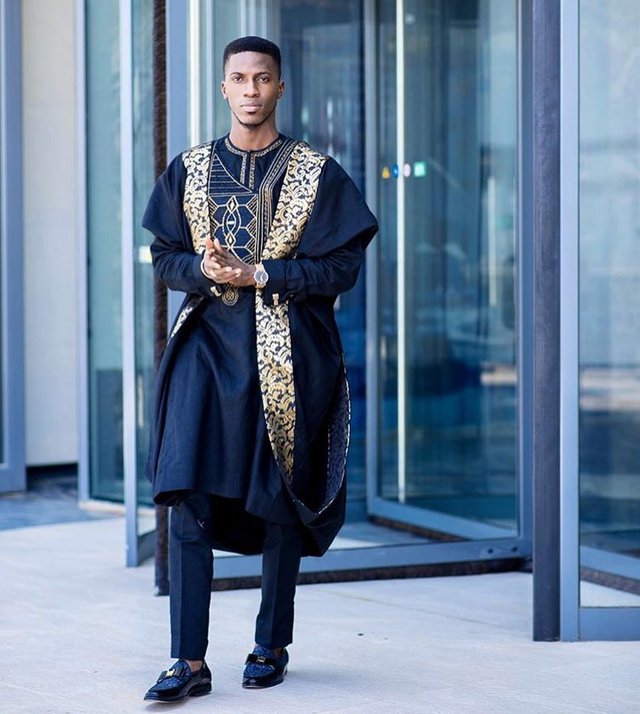
The Agbada is a large and overcrowded native dress that reaches far below the knees and sometimes reaches the user's ankles. It is mainly used by men and thus remains in the body of the user; It needs to be constantly adjusted to ensure that the user's shoulders do not fall off. These wrinkles and the way they are held to hold the Agbada in place led to the nickname, one thousand five hundred. Usually with matching long trouser and a long-sleeved shirt that matches the body, Agbada's traditional garments can be sewn with any material that works best monochrome and expensive materials To complete the design, men wearing Agbada should also wear a native hat and shoes that help them stand out and be responsible when they become natives.
The Agbada is used throughout West Africa for any type of event / event that requires user assistance. It is sometimes called (big) Boubou or Babban Riga, depending on the country of origin / region of the user.
The senator style
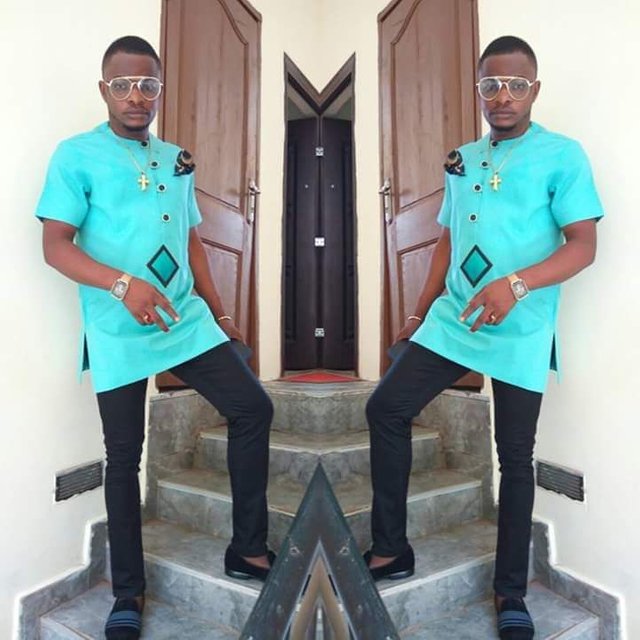
The Senator Style is a local costume popularized by Senator Pious Anyim, a former senator of the Legislative House (in Nigeria) when he was a member of the House of Representatives. This native style is made of a strong and bold costume material and has a knee-length shirt with little or no embroidery. The pants(trouser) are usually made to match the material of the shirt. This indigenous style with long or short sleeves is simple, simple, powerful and, more importantly, adopted and worn by men and boys from all over Nigeria. Stylish and elegant shoes, an eye-catching wristwatch and, if you like, sunglasses are among the standard accessories that characterize this style.
Atiku Native style
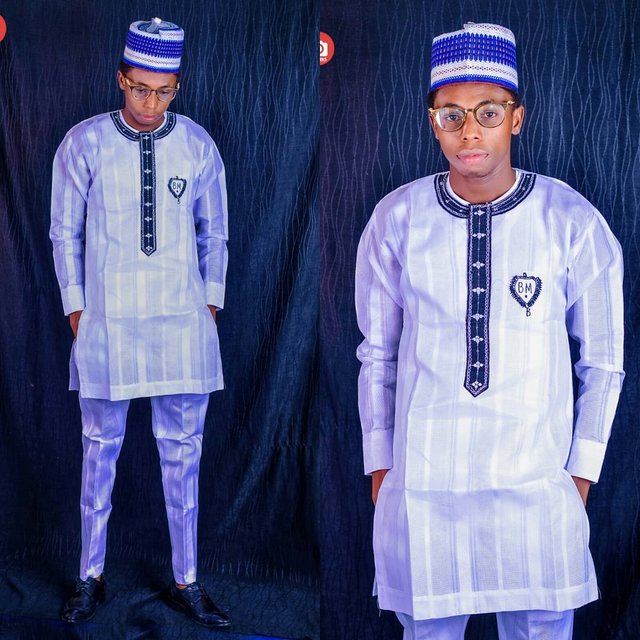
The Atiku Native Style is a kind of natural garment that is sewn in a simple and intelligent way with the end product, which is mostly adapted to the body. This style is very similar to the previous Senator Native Style, but is characterized by the fact that it is mainly kept in short sleeves, although the long-sleeved variants are not completely lacking. In addition, Atiku Native Styles are easy on embroidery, emphasizing simplicity and elegance above all else. The creators who are in this native piece often do it in navy blue, black or white, with pain, that the same material and the same fashion in the tunic on the outside are the same with the pants that completes the design. This native outfit can be worn with a hat if you want, but it is also suitable for any wearer without a hat. This Nigerian origin can be borne by men (and sometimes women) in much of West Africa, in Africa in general, and to a lesser extent in South America.
Dashiki
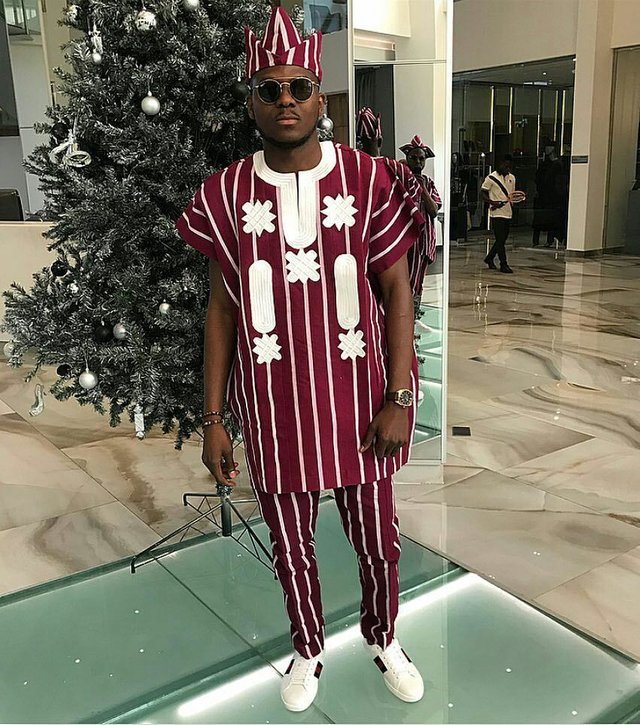
The Dashiki is sewn and designed like the Agbada mentioned above. The main difference, however, is its length (which never flows beyond the thighs); this has no overflow over the shoulders and, more importantly, is designed with two front pockets in the foreground (instead of the sides that can be obtained in the case of Agbada). The Dashiki is designed and sewn primarily with matching long trouser (pants), although some models are currently satisfied with shorts. The dashiki is worn capless or capless, depending on your preference or mental condition. In addition, shoes are optional considering this traditional outfit because it works well with a pair of shoes or any other kind of shoes for that matter. Dashiki is very popular in Nigeria and other West African countries, including Ghana and the Republic of Benin.
Ghana Sheets stripped (Batakari)
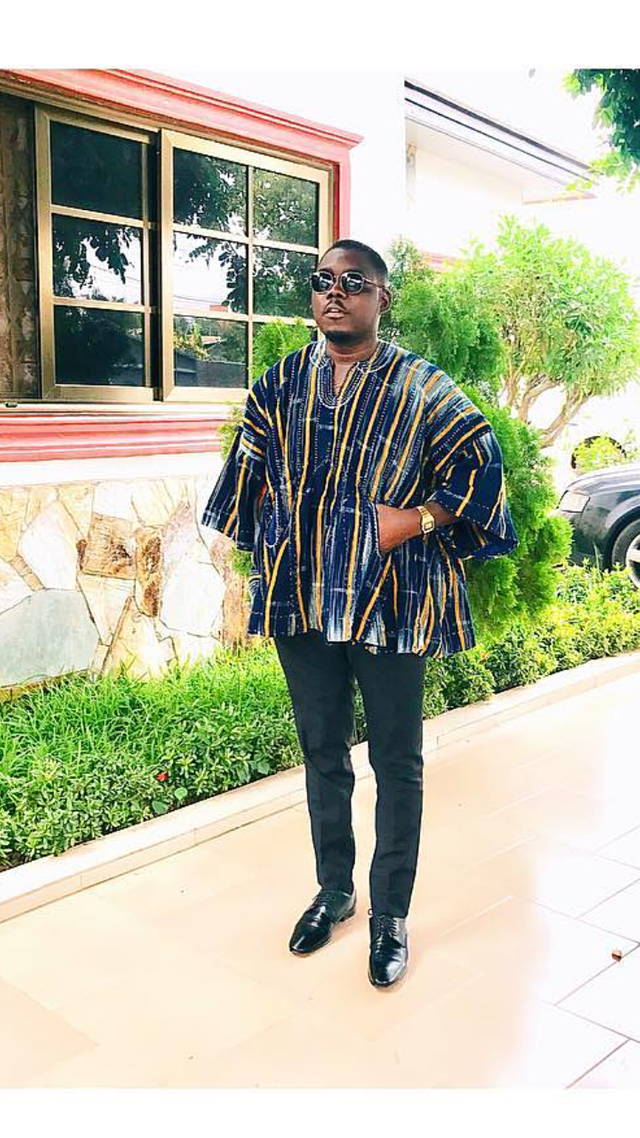
Ghanaian Stripped Smocks is the most popular indigenous costume of Ghanaian men. The stripped smocks are very similar to the dashiki and are made of thick, hand-woven fabric with stripes running the full length and width. These bands alternate in a black and white pattern that changes in hue and overall intensity. When sewn and worn, a lightweight design is visible on the front, especially the neck with the finished helmet in a manner that represents short lengths of wool that can move freely. The Ghanaian Stripped Smocks is a national gown in Ghana and is therefore widely used and is very popular in the country.
The Senegalese Caftan
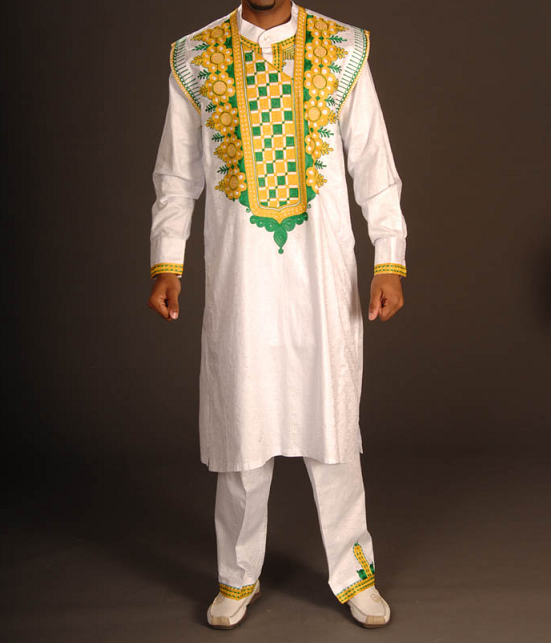
The Senegalese Kaftan (also known as Boubou) is a dress exclusively for men and used in French-speaking Senegal. This variant of the kaftan is essentially a long-sleeved long-sleeved tunic that's finished bell-shaped. The Senegalese kaftan is usually made of cotton, synthetic or lace and is sewn so that it covers the entire body and the outer garment reaches the ankles constantly (and sometimes even towering). This kaftan is mainly used as a formal garment in Senegal (and neighboring countries), although its use is allowed for semi-formal or completely informal events. The kaftan is worn with shoes or shoes depending on personal taste and is often worn with a matching cap.
Join me next week for another edition of fashion Wednesday always your fashionista @lashbank
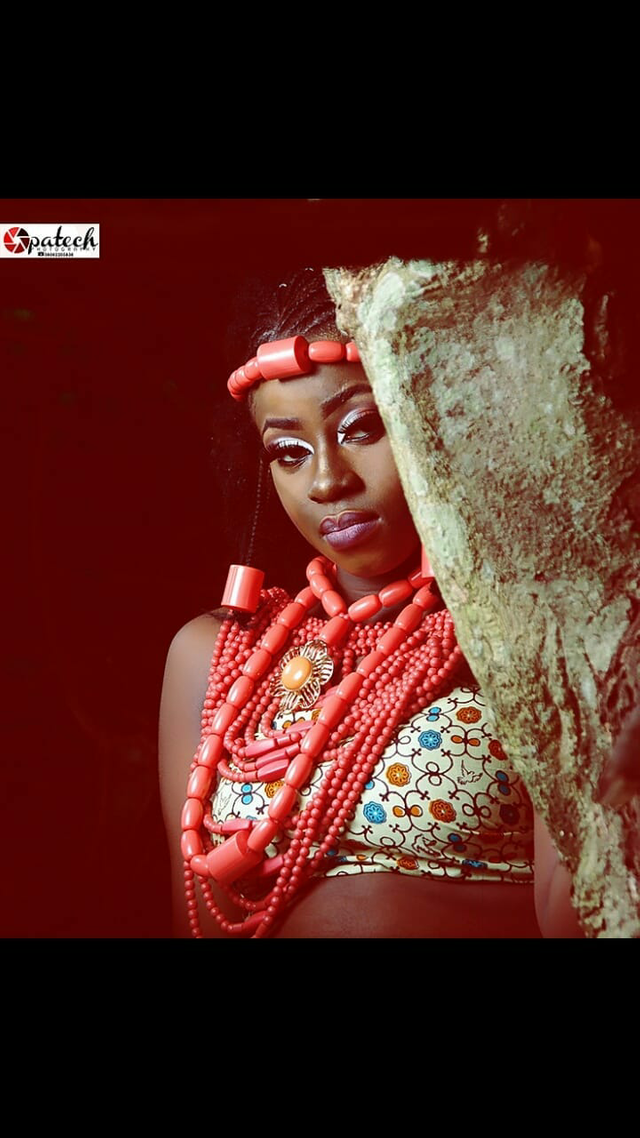
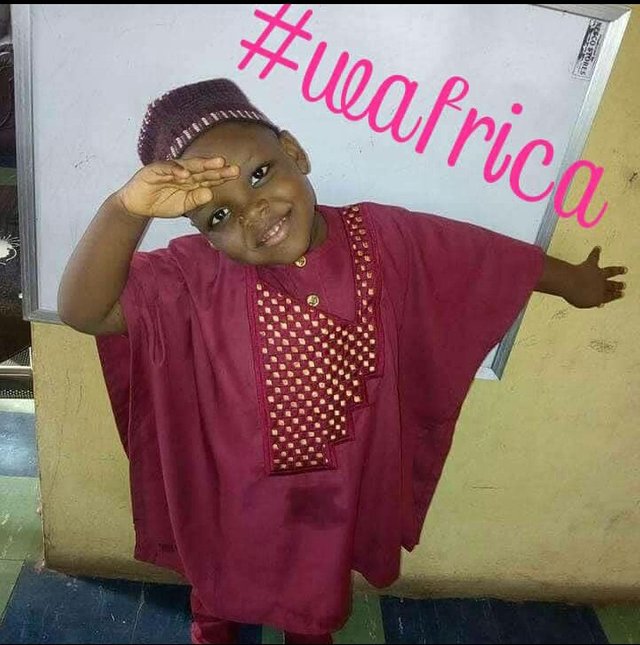
Congratulations @lashbank! You received a personal award!
You can view your badges on your Steem Board and compare to others on the Steem Ranking
Do not miss the last post from @steemitboard:
Vote for @Steemitboard as a witness to get one more award and increased upvotes!
I love it!
Very good to see these defined with crisp examples, thank you.
Congratulations @lashbank! You have completed the following achievement on Steemit and have been rewarded with new badge(s) :
Click on the badge to view your Board of Honor.
If you no longer want to receive notifications, reply to this comment with the word
STOPCongratulations @lashbank! You received a personal award!
Click here to view your Board